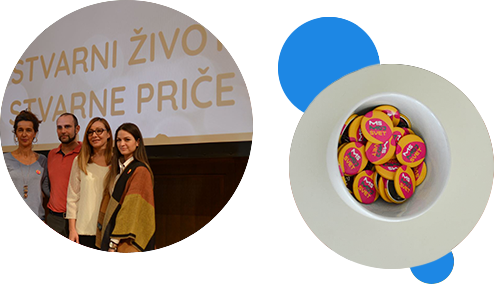We are an initiative, a movement that is fighting for the availability of therapies for all MS patients.
The MS platform of Serbia is a non-partisan, non-governmental and non-profit association of patients suffering from multiple sclerosis (MS). Along with patients members of the association are also their family members, friends, neurologists, MS nurses, as well as all people of good will who want to help MS patients in Serbia to be treated in the best possible way, to secure patients’ right to have medical treatment and access to the best medications.
We are struggling to change two stereotypes related to MS.
The first is that the disease is incurable and that patient will inevitably end up in the wheelchair. That’s how it used to be before MS medications existed.
Second stereotype is that there is no medications for MS. There are as many as 14 registered original medications that alter the course of this disease, put it under control and allow patients to lead a normal life. It is important to start with the therapy as soon as possible, immediately after MS is diagnosed and choose the right medicine according to the characteristics of the patient, the characteristics and stadium of the illness.
This site has the task to educate both patients and physicians about existing medications, principles and goals of treatment, latest achievements in the field of MS research, events and actions related to MS in our country and in the world. Collaborators on the site will be doctors, psychologists, PM&R specialists, MS nurses, patients and their families.
We will partner all those advocating and fighting for access to MS treatment medications for everyone suffering from this severe illness.

Multiple sclerosis occurs in the form of various clinical symptoms that may be different from person to person.
Treatment MS has changed dramatically over the past twenty years. From a disease for which there was no medicine …



 Doniraj
Doniraj







